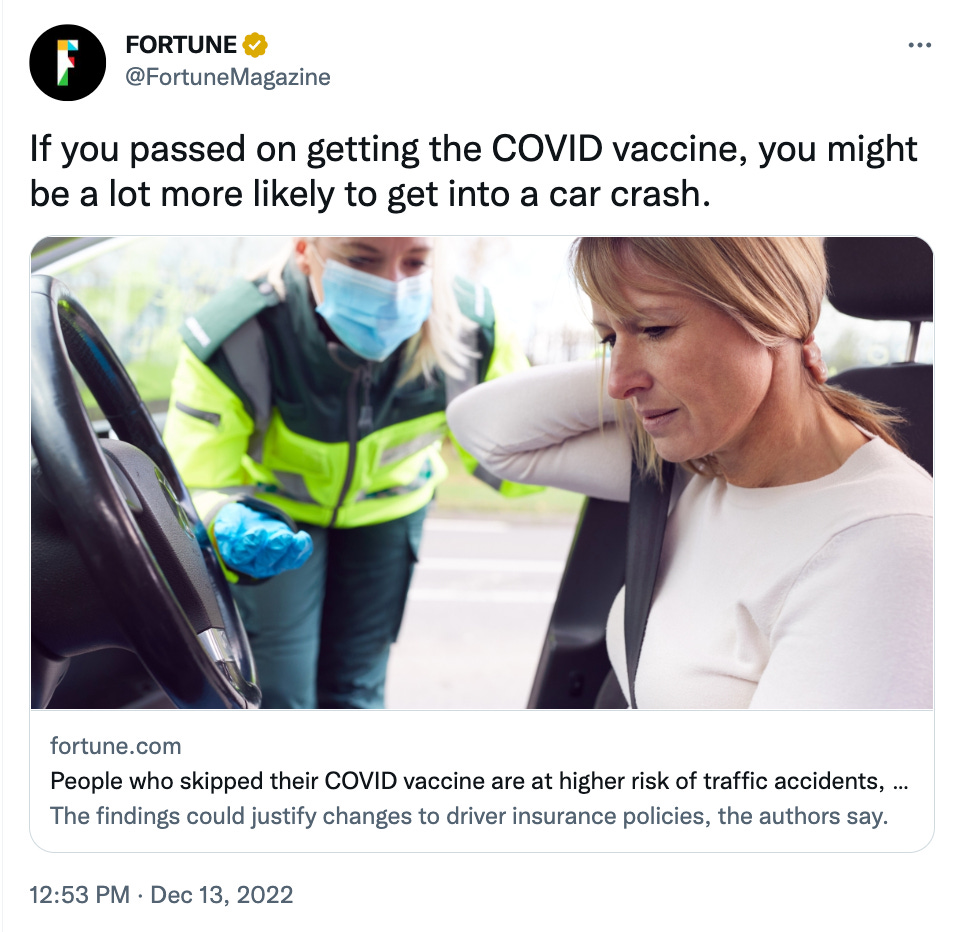People Who Refuse COVID-19 Vaccines Are More Likely to Get in a Car Crash, 'Science' Says
A new study links unvaccinated individuals and their psychological condition known as, "vaccine hesitancy" to an increased risk of serious traffic accidents, but this simply isn't true.
People who refuse to get the COVID-19 vaccine are significantly more likely to get into a car crash, adding evidence to the theory that “anti-vaxxers often demonstrate other kinds of dangerous antisocial behavior,” — according to a study passed off as “science” and parrotted by the mainstream media.
In a recent study published in the American Journal of …




